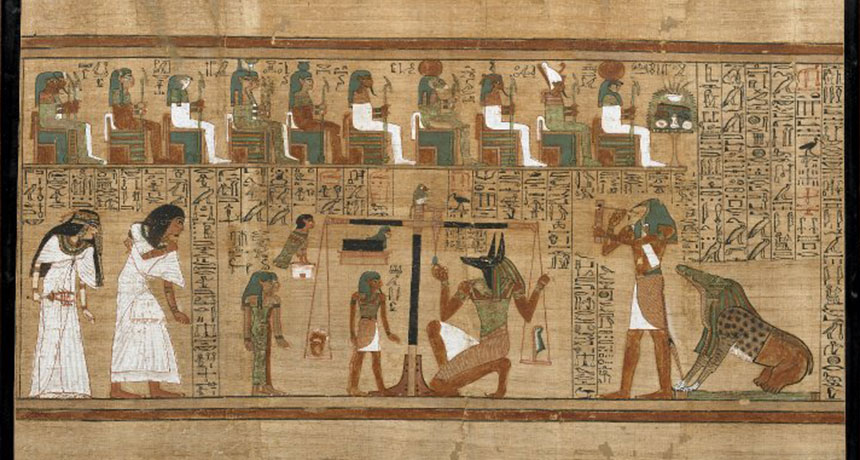Rise of human civilization tied to belief in punitive gods
Long-distance strangers who share certain religious beliefs more likely to create societal bonds, study suggests

GODS’ WRATH Beliefs in all-knowing, punitive gods helped turn hunter-gatherer groups into large civilizations, a new study suggests. Here, a papyrus manuscript from the ancient Egyptian Book of the Dead shows a line of Egyptian gods (top) ready to judge whether the dead Theban scribe Ani should be admitted to the afterlife or sent to the underworld.
Trustees of the British Museum






